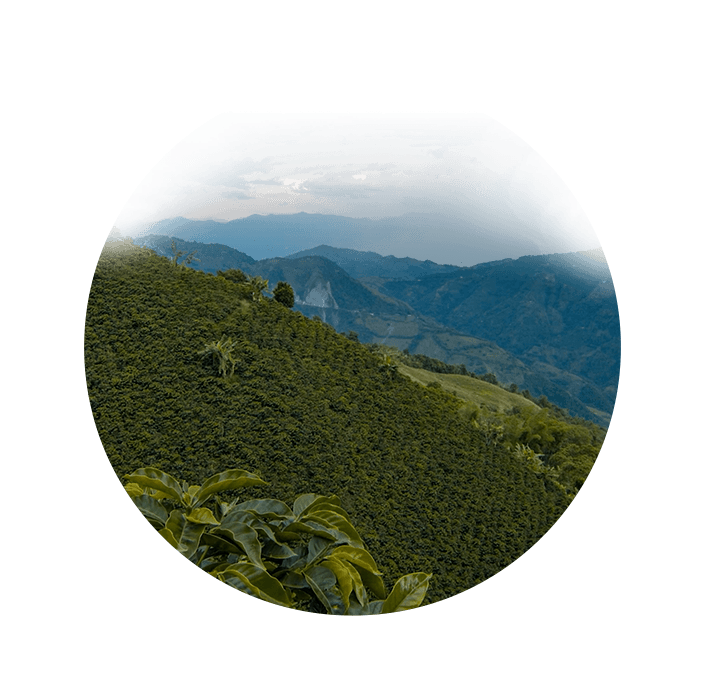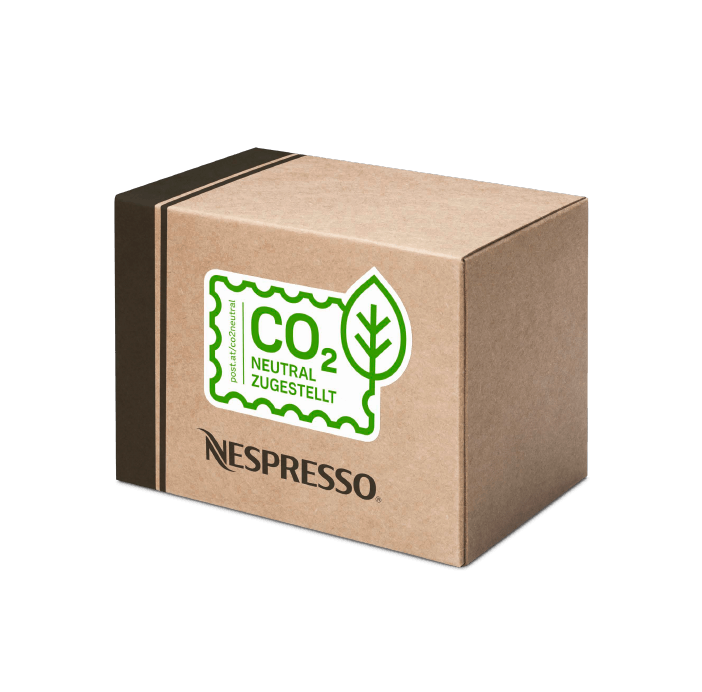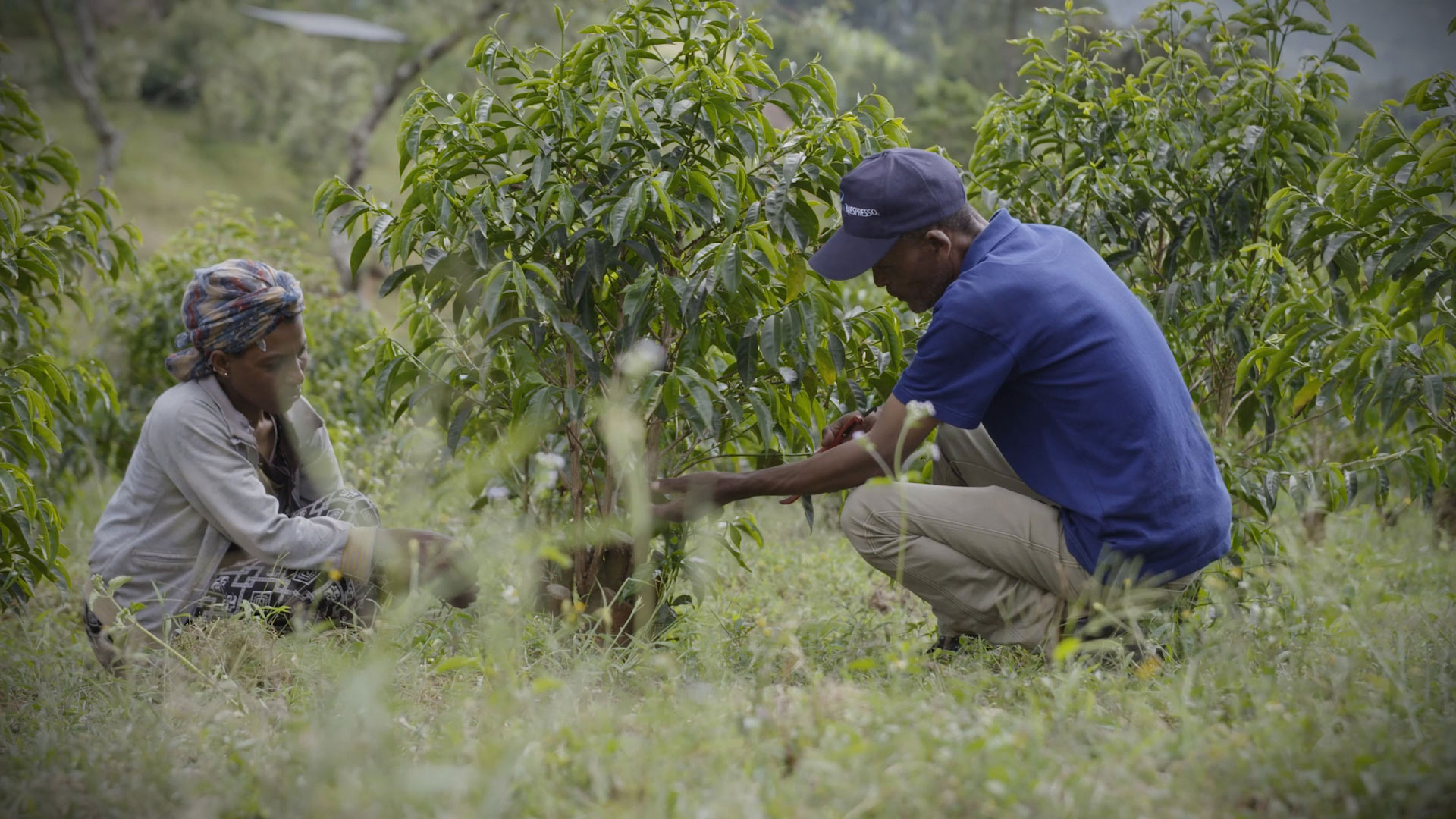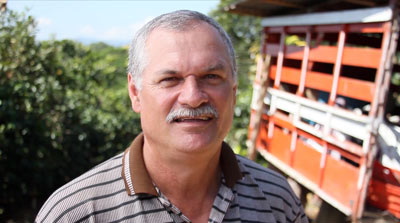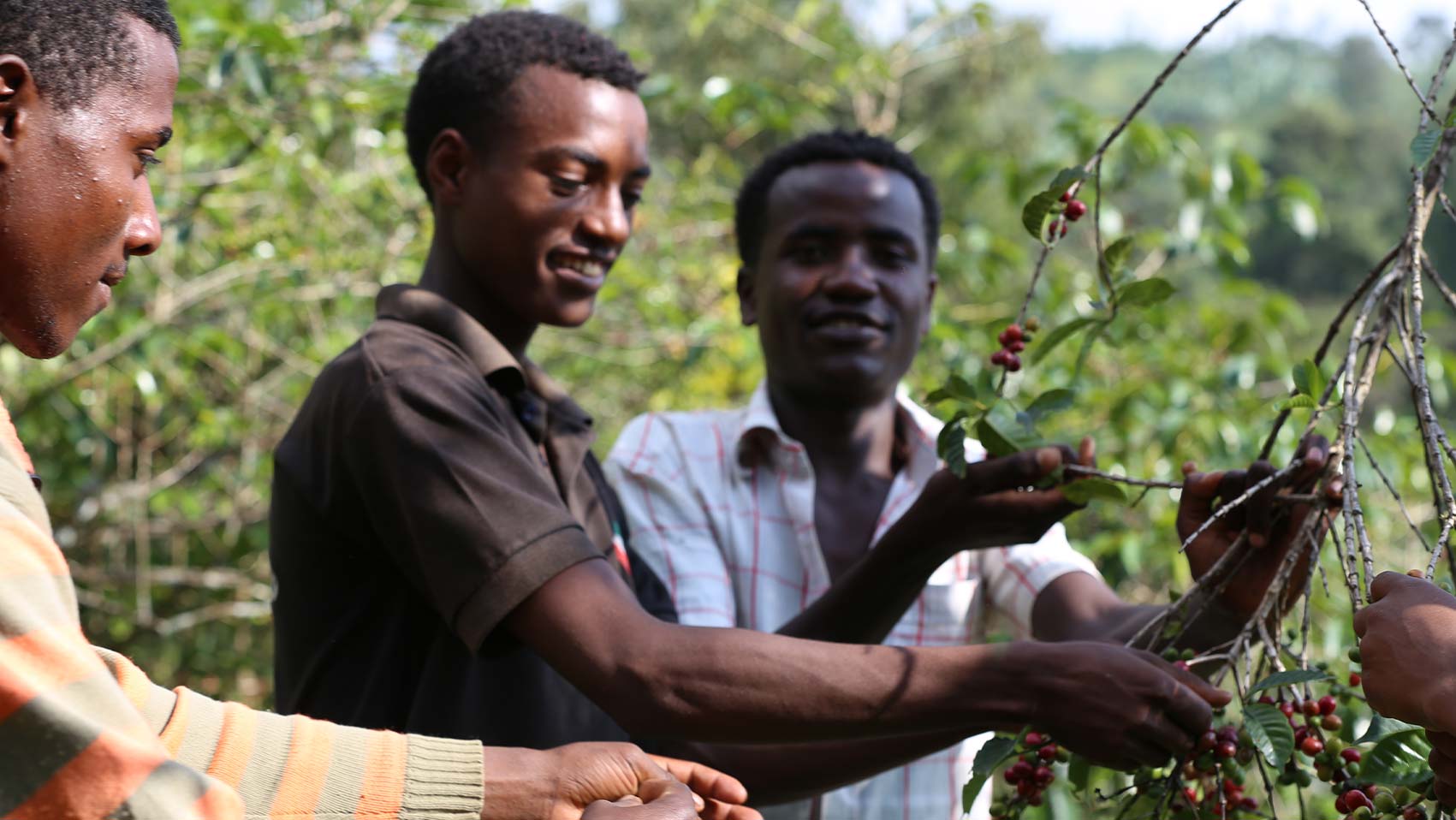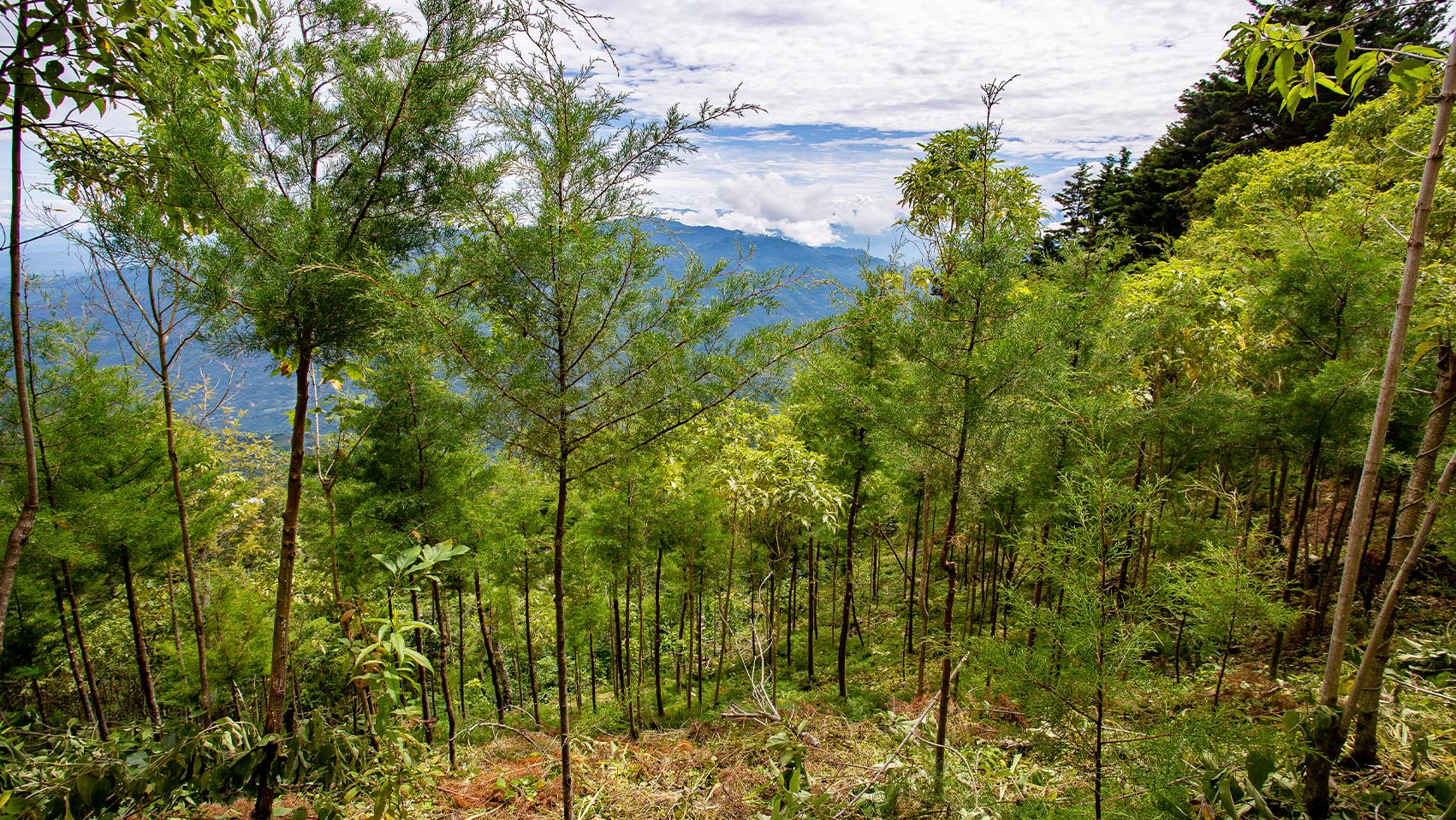ENJOYING COFFEE SUSTAINABLY
For Nespresso, sustainability and coffee enjoyment are inextricably linked. Therefore, Nespresso continuously strives to make coffee production more resource-efficient as part of a holistic sustainability program. Through its specially created AAA Sustainable Quality™ Program, Nespresso has been working since 2003 to make coffee production as sustainable as possible – from its environmental impact to the living conditions of coffee farmers, who are supported through incentives and insurance programs, among other things. To sustainably secure the future of high-quality coffee and preserve ecosystems in the long term, Nespresso relies on regenerative agriculture. This ensures better soil health through, for example, mulching and composting.
Since the first analysis of the life cycle of a cup of coffee in 2005, Nespresso has been working consistently to reduce CO2 emissions and is resolutely continuing on this path: Nespresso reduced 286,000 tons of CO2 eq emissions in 2024.* By 2050, Nespresso has set itself the goal of becoming a Net Zero company across its entire supply chain and product life cycle, in line with SBTi standards.** The short- and long-term targets were released in May 2024.
*CO2-eq compared to our business-as-usual calculations. Greenhouse gas emission reductions according to the SBTi scope were calculated at 188,000 t CO2-eq in November 2024. Due to changes in methodology and a new basis for green coffee supply, the final value for 2024 was corrected to 286,000 t CO2-eq.
**https://nestle-nespresso.com/nespresso-achieves-important-milestone-climate-commitment.
Read more about our progress and goals for a more sustainable future:
Current Sustainability Report
As a certified "Benefit Corporation," Nespresso is part of a global movement of companies in over 150 industries and more than 70 countries committed to environmental sustainability and social responsibility. As a certified B Corp, we work tirelessly to minimize our impact on the climate—from protecting sensitive ecosystems to optimizing the transportation of our products.
Nespresso has developed a variety of initiatives at the global and local level, including the AAA Sustainable Quality™ Program or Sustainability Advisory Board. In addition, Nespresso employees in Austria can actively engage in the "Force for Good Day" one day per year in projects in cooperation with partners such as Caritas or Biosphärenpark Wien.
*Despite the melting loss, the metal properties remain unchanged and it can be recycled repeatedly.
Learn more
As part of a pilot project with the Austrian Coffee and Tea Association and Altstoff Recycling Austria AG (ARA), it is now possible in Upper Austria, Krems Land, and Schwechat to collect coffee capsules of all materials and brands together and recycle them at waste collection centers and all Upper Austrian BILLA Plus stores.
Learn more
PREPARATION
Each Nespresso capsule contains exactly the amount of coffee needed for one cup. When preparing coffee with other systems, such as fully automatic or filter coffee machines, more ground coffee is often used than necessary, or more coffee is prepared than consumed. The amount of coffee consumed is relevant because the greatest environmental impact of a cup of coffee – regardless of the preparation system – occurs during the preparation of the green coffee, from the cultivation of the green coffee to its transport to the production centers. Modern Nespresso machines also optimize energy consumption (through an automatic shut-off function) and water consumption.
Through the perfect interaction between capsule and machine, the portioned system helps reduce the environmental impact of a cup of coffee.*
*Quantis comparative LCA: Life Cycle Assessment of a Lungo cup of coffee made from a Nespresso ORIGINAL capsule compared with other coffee systems in Europe.
Learn more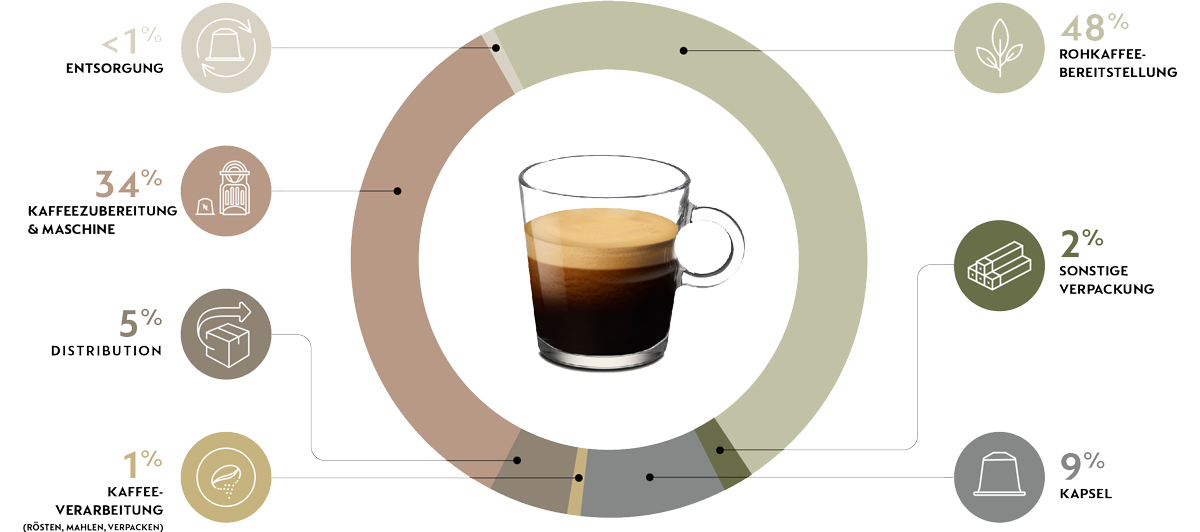
That’s because the main drivers aren’t always where you expect them. Most of the carbon emitted by a cup of Nespresso coffee is generated during the preparation of the green coffee.
In addition, a cup of coffee prepared with the Nespresso system has a 24 % lower carbon footprint than a cup prepared with a fully automatic coffee machine, as confirmed by the life cycle analysis conducted by Quantis in Europe in 2024.*
*Quantis comparative LCA: Life Cycle Assessment of a Lungo cup of coffee made from a Nespresso ORIGINAL capsule compared with other coffee systems in Europe.
PACKAGING
*Quantis comparative LCA: Life Cycle Assessment of a Lungo cup of coffee made from a Nespresso ORIGINAL capsule compared with other coffee systems in Europe.



*At least 80% of the used aluminium was recycled.
**International Aluminium Institute: https://international-aluminium.org/landing/aluminium-recycling-saves-95-of-the-energy-needed-for-primary-aluminium-production/
***Despite the melt loss, the metal properties remain unchanged and it can be recycled repeatedly.
****International Aluminium Institute: https://international-aluminium.org/landing/75-of-all-aluminium-ever-produced-is-still-in-use-today/
Learn more
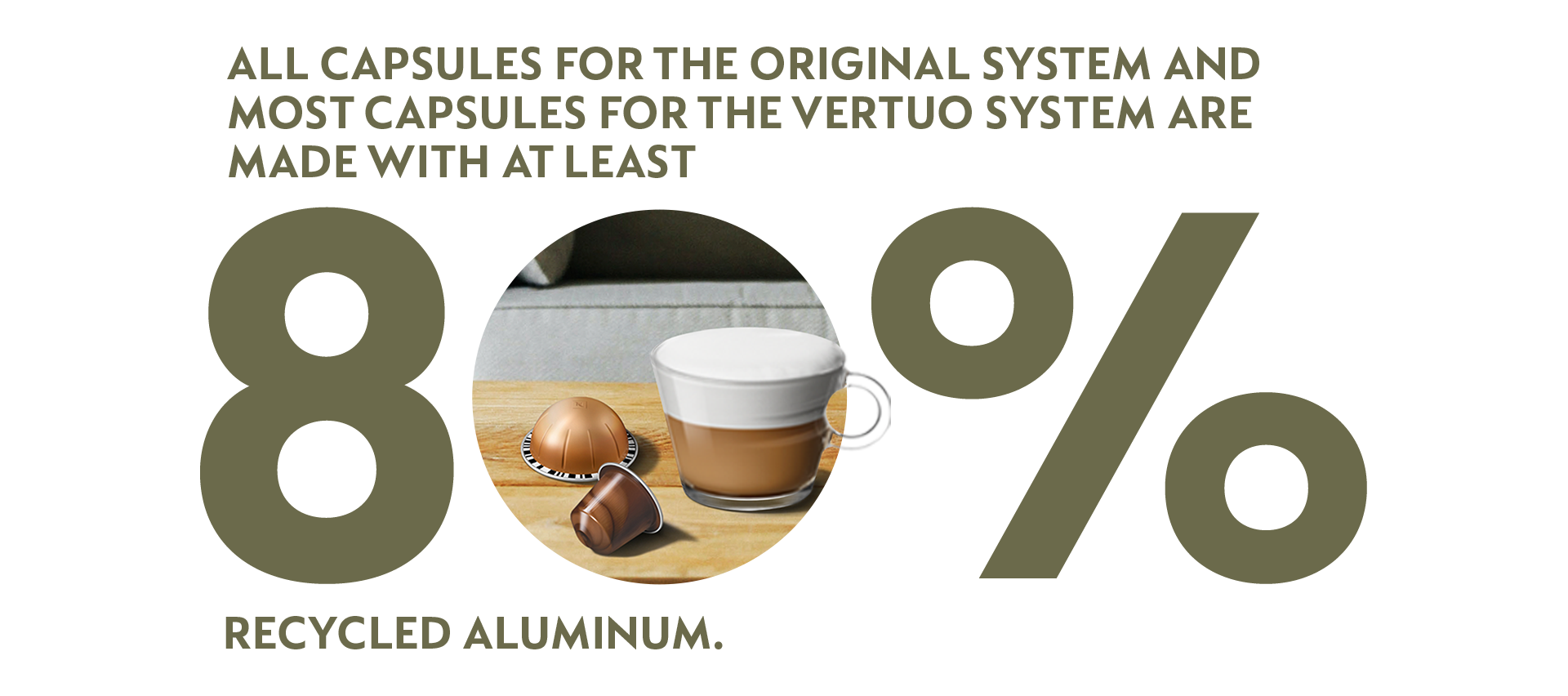
TRANSPORT
* Österreichische Post: https://www.post.at/ir/c/co2-neutral-kompensation-klimaschutzprojekte
Find out more
REGENERATIVE
AGRICULTURE
To preserve biodiversity and natural resources in the long term, farmers in the AAA program are supported in introducing sustainable coffee cultivation practices and converting their farms to regenerative agriculture – with the goal of not only preserving agricultural land and ecosystems, but even restoring them with the power of nature.
For example, they are supported in establishing sophisticated agroforestry systems and cultivating other crops, such as fruit and shade trees. The interplay of different plants improves the microclimate and protects the soil from erosion. The cultivated areas therefore produce higher yields than monocultures. In addition, farmers can use secondary products such as fruit and timber for their own consumption or generate additional income by selling them.
In this way, regenerative agriculture not only addresses the challenges of climate change but also strengthens the resilience of coffee communities.
Learn more
Through the AAA Sustainable Quality™ Program, Nespresso builds long-term relationships with farmers and purchases coffee from the same farms year after year, at a price that is 98% equal to or even higher than the Fairtrade Minimum Price.*
To strengthen coffee communities, Nespresso makes extensive investments in local infrastructure, including facilities like wet mills that make coffee processing more efficient, enable higher coffee quality, and thus ensure higher incomes for farmers.
To secure the future of farmers, Nespresso is developing and initiating pension savings plans with partners in Colombia, for example. Nespresso has also developed an insurance program there as part of a flagship initiative with Blue Marble Microinsurance to protect farmers from extreme weather and the associated crop failures.
In this way, Nespresso is driving sustainable development in coffee-growing regions and also creating social impact.
* A study conducted by FLOCERT in 2023 showed that 98% of the green coffee purchased by Nespresso met the Fairtrade Minimum Price (excluding the Fairtrade Premium) applicable in 2022.
More information
Nespresso AAA Sustainable Quality™ Program since 2003
* Decrease compared to the previous year due to supply chain disruptions, inventory build-up and availability issues for certain coffee varieties.
